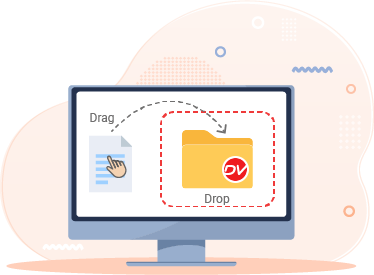Compliance with Version Control

Introduction
Document Version control, a system that tracks changes made to documents over time, is a fundamental component of any effective document management system. In industries where compliance is paramount, such as healthcare, finance, and law, version control plays a crucial role in ensuring that documents are accurate, accessible, and auditable.
What is Document Version Control?
Document Version control essentially creates a history of a document, allowing you to see who made changes, when they were made, and what those changes were. This audit trail is invaluable for demonstrating compliance with industry regulations and offering a clear record of document modifications.
Key features of version control in DMS:
Check-in/Check-out: This mechanism allows users to lock a document for editing, preventing conflicts when multiple users work on the same document simultaneously.
Version history: The system records all changes made to a document, including the date, time, and checked-by.
Revert to Previous Versions: Ability to restore a document to a previous state if necessary.
Prevent Data Loss: Ensures that all changes are captured and preserved, preventing accidental overwrites and data loss.
Why Version Control is Crucial for Compliance
Version control is essential for compliance in several ways:
Auditability: A robust version control system provides a clear audit trail, making it easy to demonstrate compliance with regulations that require a record of document changes. Organizations operating in regulated environments often rely on structured compliance frameworks to ensure document governance standards are consistently met.
Data integrity: Version control helps maintain data integrity by ensuring that only authorized users can make changes to documents and that all changes are tracked. This is crucial for preventing unauthorized access and tampering with sensitive information. This principle applies equally to email records, where structured email management ensures communications remain secure, traceable, and compliant.
Document retention: Many regulations require organizations to retain documents for a specific period. Version control can help ensure that documents are retained for the required duration and that older versions are accessible if needed.
Electronic signatures: In some industries, electronic signatures are required for certain documents. Version control can help track the signing process, ensuring that documents are signed by authorized individuals and that the signed versions are retained.
Read: Why Do You Need Document Management Software For Compliance?
The Role of Version Control in Industry Compliance
Version control plays a pivotal role in ensuring compliance with various regulations, including:
Financial Reporting:
For organizations in the financial sector, version control helps maintain accurate records of financial documents, which is essential for compliance with accounting standards like GAAP or IFRS.
Healthcare:
In healthcare, version control is crucial for maintaining patient records, ensuring data integrity, and complying with regulations like HIPAA.
Legal:
Law firms and legal departments rely on version control to track changes to legal documents, ensuring that the most up-to-date versions are used and that there is a clear audit trail for e-discovery purposes.
Regulatory Compliance:
Many industries have specific regulations that require the tracking and retention of documents. Version control helps organizations meet these requirements by providing a clear history of document changes.
Key Compliance Considerations
When implementing version control in a DMS, organizations should consider the following:
Retention Policies: Establish clear retention policies for different types of documents to ensure compliance with regulatory requirements.
Access Controls: Implement robust access controls to restrict access to sensitive documents and prevent unauthorized modifications.
Audit Trails: Ensure that the version control system generates detailed audit trails that can be used for compliance audits and investigations.
Data Integrity: Protect the integrity of documents by implementing measures to prevent unauthorized modifications and data corruption. Guarantees that users are only ever editing the most current version.
Best Practices for Version Control and Compliance
- Remove Outdated Versions: Incorporate a strategy for routinely discarding obsolete document versions, a key component of most version control systems.
- Regularly review and update policies: Ensure that your organization’s policies for document management and version control are up-to-date and align with relevant regulations.
- Provide training to employees: Train employees on how to use the version control system and the importance of following compliance guidelines.
- Conduct regular audits: Conduct regular audits to ensure that the version control system is being used effectively and that compliance requirements are met.
Conclusion
At Docsvault, we are committed to providing the most advanced document version control and management systems for complex projects and operations. For organizations navigating the complexities of enterprise document management, adopting robust version control isn’t just an option—it’s a necessity. Implementing version control effectively in your DMS will enhance compliance, boost efficiency, and reduce the risk of legal and financial penalties.
Version control is more than just a technical feature—it’s a critical tool for maintaining regulatory compliance and protecting your organization’s reputation. Embrace the power of Docsvault’s document management and optimize your document version control processes today!





